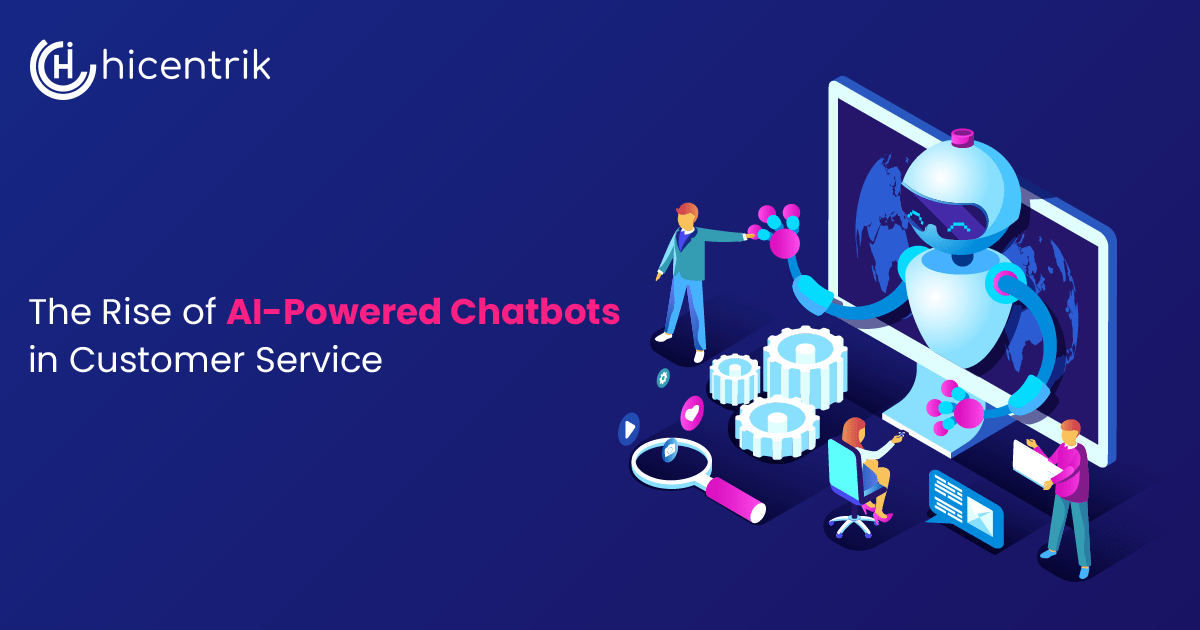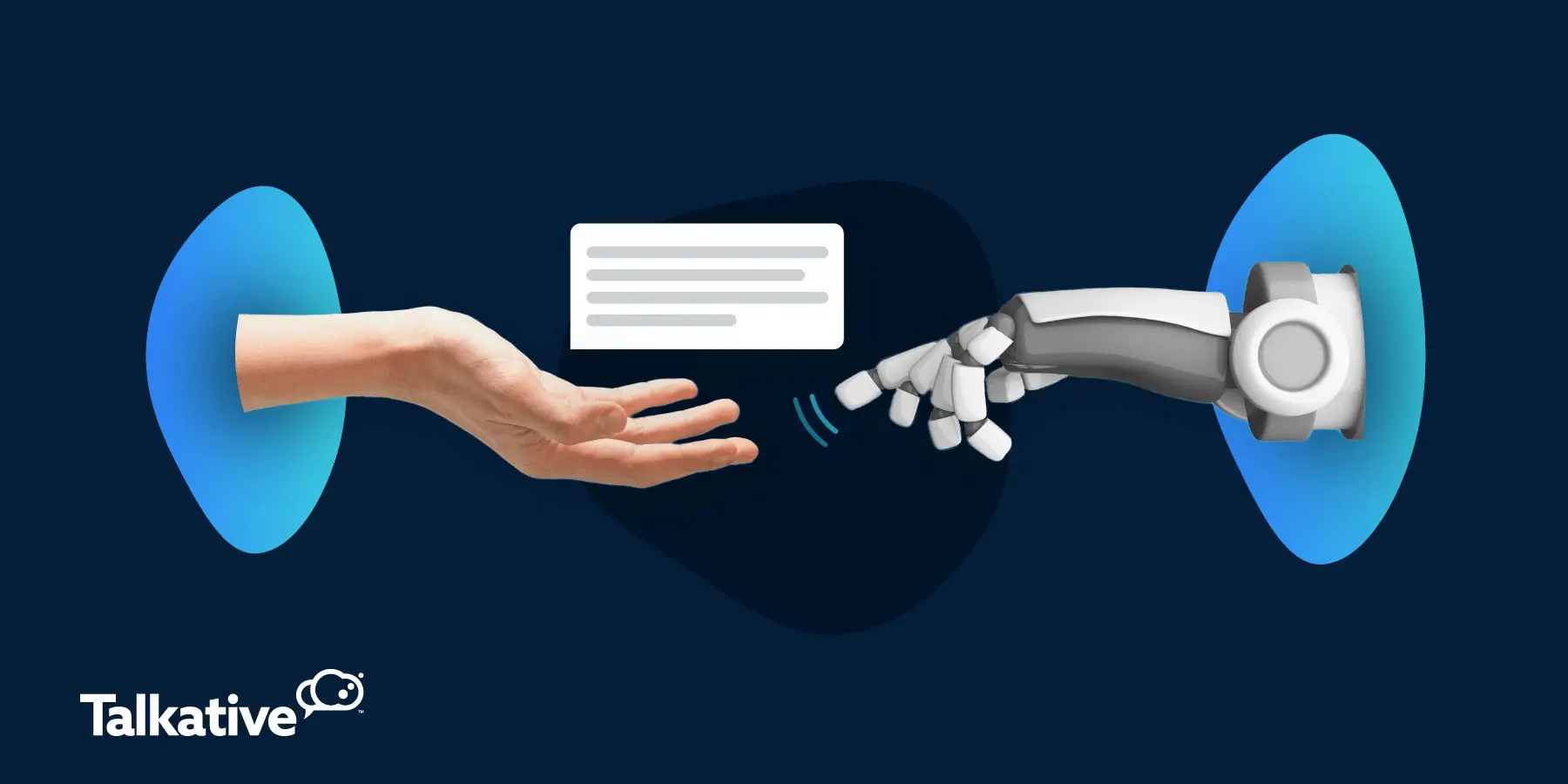The Rise of Chatbots and Virtual Assistants in Customer Support
In the past, if you wanted customer support, you would call a company, wait on hold, and speak to a human agent. Today, things are changing. Companies are increasingly turning to chatbots and virtual assistants to help answer customer questions, solve problems, and provide support quickly and efficiently. This shift is happening for many reasons, including cost savings, improved customer experience, and the growth of artificial intelligence (AI). In this article, we’ll take a closer look at how these technologies are reshaping customer support and what it means for businesses and consumers.

What Are Chatbots and Virtual Assistants?
Chatbots are software programs that use AI to simulate conversations with users. They can answer questions, provide information, or direct users to the right person or service. Chatbots can be used in various ways, such as on websites, social media platforms, and mobile apps. They are often programmed to handle basic or repetitive tasks like answering FAQs, booking appointments, or checking order status.
Virtual assistants are similar but often more advanced. They can manage tasks such as setting reminders, sending messages, and even controlling smart home devices. Examples include Siri (Apple), Alexa (Amazon), and Google Assistant. In customer support, virtual assistants help by providing more complex, personalized interactions and can learn from each conversation to improve over time.
Why Are Chatbots and Virtual Assistants Growing in Popularity?
- Cost-Effective Solution
One of the main reasons businesses are adopting chatbots and virtual assistants is that they can save money. Hiring a team of customer support agents to handle every customer query is expensive. With AI-powered systems, companies can handle many customer interactions at a fraction of the cost. Chatbots are available 24/7, allowing businesses to offer continuous support without increasing labor costs.
- Improved Efficiency
Chatbots can answer a wide range of customer questions in seconds, allowing companies to resolve issues much faster. This improves overall efficiency in customer support and helps businesses deal with large volumes of inquiries simultaneously. Instead of waiting on hold, customers can get the information they need instantly.

- Better Customer Experience
Chatbots and virtual assistants can provide customers with faster, more convenient support. For example, a customer can ask a chatbot for help with an issue at any time of the day or night, without waiting for business hours. The technology is designed to offer quick responses and consistent, helpful information, leading to a better customer experience overall.
- Handling Simple Inquiries
Not every customer inquiry requires human attention. Many questions are repetitive and easy to answer, such as “Where is my order?” or “How can I change my password?” Chatbots can efficiently handle these types of simple inquiries, leaving human agents to focus on more complex or sensitive issues.
How Do Chatbots and Virtual Assistants Work in Customer Support?
Chatbots and virtual assistants rely on various technologies, including natural language processing (NLP) and machine learning, to understand and respond to customer inquiries.
- Natural Language Processing (NLP)
NLP allows chatbots and virtual assistants to understand the language customers use. It breaks down text into smaller parts and interprets the meaning behind the words. For instance, if a customer types, “I want to track my order,” the chatbot will recognize the intent and provide the customer with tracking information.
- Machine Learning
Machine learning allows chatbots and virtual assistants to learn from previous interactions. As they interact with more customers, they get better at understanding questions and providing accurate answers. The more data they process, the smarter they become.
- Automation and Integration
Chatbots can be integrated with other tools, such as CRM (Customer Relationship Management) systems, email platforms, or order management systems. This integration allows them to automate tasks like checking order statuses, processing refunds, or updating customer records—all without human involvement.

The Benefits of Chatbots and Virtual Assistants in Customer Support
- 24/7 Availability
One of the greatest advantages of chatbots is that they can be available around the clock. Customers no longer need to wait until business hours to get help. Whether it’s early in the morning or late at night, chatbots are always on hand to provide assistance.
- Handling High Volumes of Requests
During peak times, businesses can experience a flood of customer inquiries. Chatbots can handle many of these requests simultaneously, ensuring that no one is left waiting for help. This is especially important for businesses that deal with a high volume of customer interactions, such as e-commerce platforms.
- Personalized Interactions
While chatbots are often associated with basic tasks, advancements in AI are allowing them to handle more personalized and complex requests. Chatbots can remember customer preferences, past interactions, and even recommend products or services based on previous behavior. This personalization creates a better overall experience for the customer.
- Cost Savings for Businesses
By automating repetitive tasks, businesses can cut down on the need for large customer support teams. This leads to significant cost savings while still offering quality support to customers. It also frees up human agents to handle more complicated cases, where human judgment is needed.

Challenges and Limitations
While chatbots and virtual assistants are a great solution for many customer service tasks, they do come with their challenges.
- Lack of Human Touch
Sometimes, customers want to speak to a human. While chatbots can handle simple inquiries well, they might struggle with complex issues that require empathy or judgment. Customers may feel frustrated if they can’t reach a real person when needed.
- Accuracy and Reliability
Chatbots are only as good as the data they’re trained on. If they haven’t been programmed to handle certain questions or scenarios, they may provide inaccurate or irrelevant answers. Additionally, some chatbots may misunderstand customer input, leading to frustrating experiences.
- Security and Privacy Concerns
Since chatbots handle sensitive information, such as personal details and payment data, there are security concerns about how that information is stored and processed. Businesses must ensure that their AI systems are secure to protect customer privacy.

The Future of Chatbots and Virtual Assistants in Customer Support
The future of chatbots and virtual assistants in customer support is bright. As AI technology continues to improve, we can expect chatbots to become more intelligent, capable of handling more complex tasks and offering even more personalized interactions. Virtual assistants may become more integrated into other parts of life, offering assistance not just in customer support but also in everyday tasks such as shopping, managing schedules, and controlling home devices.
Furthermore, advancements in AI ethics will help address privacy and security concerns, making customers feel more confident in using these technologies.
Conclusion.
Chatbots and virtual assistants are no longer just a novelty—they are becoming an essential part of customer support for businesses worldwide. They offer numerous benefits, including cost savings, efficiency, and improved customer experience. However, there are still challenges to overcome, particularly when it comes to providing the human touch that some customers prefer. As AI continues to advance, we can expect these technologies to become even more sophisticated and capable of delivering exceptional customer service, helping businesses and consumers alike navigate an increasingly digital world.


You must be logged in to post a comment.